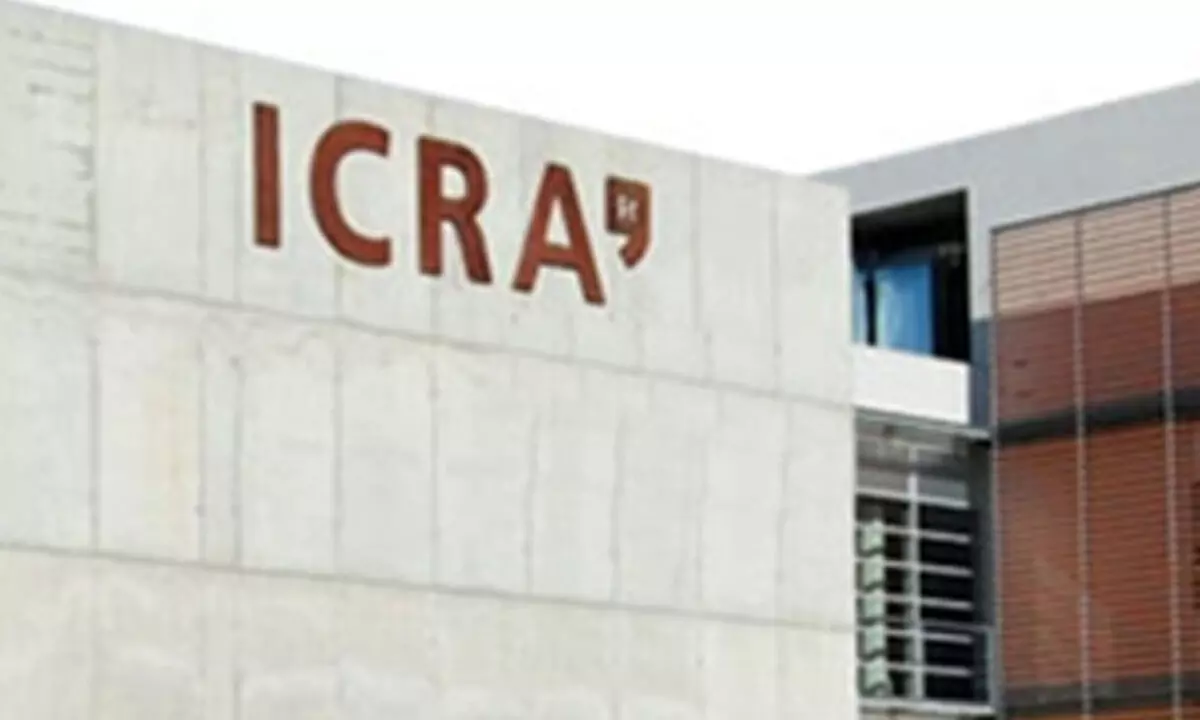Live
- Kejriwal writes to HM Shah on law and order, seeks urgent meeting
- Big e-commerce firms to adopt Safety Pledge on National Consumer Day
- Cop ends life over torture by wife, father-in-law in Bengaluru
- Indian Constitution longest and most beautiful, Kiren Rijiju lauds its inclusive character
- BSNL's Rs 333 Plan Challenges Airtel and Jio with 1300GB Data: Details
- PM Modi's appeal to buy Khadi garments leads to huge demand in Bihar's Samastipur
- Mohammad Amir announces retirement from international cricket
- Chandrababu supports One Nation, One Election System, says elections in 2029
- Cong not pursuing politics of vengeance: D. K. Shivakumar on Covid 'scam' FIR
- Mexican consulates to strengthen support for nationals in face of US deportation
Just In
Aviation industry to see 8 to 13 pc surge in domestic passengers: ICRA report

Despite facing supply chain challenges and engine failures, Indian aviation industry is set to scale new heights in the coming years, according to a recent report by ICRA, a leading credit rating agency.
New Delhi: Despite facing supply chain challenges and engine failures, Indian aviation industry is set to scale new heights in the coming years, according to a recent report by ICRA, a leading credit rating agency.
In its report, ICRA estimated a remarkable 8-13 per cent increase in domestic air passenger traffic for the fiscal year 2024, surpassing pre-COVID levels.
"This growth momentum is expected to continue into FY2025, driven by rising demand for both leisure and business travel, coupled with improving airport infrastructure," as per report.
Moreover, international passenger traffic for Indian carriers is expected to rebound strongly, with estimated year-on-year growth rates of 7-12 per cent for FY2024 and FY2025, surpassing pre-pandemic levels.
The report also said that industry net loss is expected to decline significantly to Rs 30-40 billion in FY2024 and FY2025 from Rs 170-175 billion in FY2023.
ICRA maintains a Stable outlook on the Indian aviation industry,amidst the continued recovery in domestic and international air passenger traffic, and relatively stable cost environment.
Commenting further, Suprio Banerjee, Vice President and Sector Head - Corporate Ratings, ICRA Limited, said, "The industry has witnessed improved pricing power, as reflected in increase in yields and thus the spread between revenue per available seat kilometre – cost per available seat kilometre (RASK-CASK) for the airlines."
"The same is expected to remain favourable, aided by a decline in aviation turbine fuel (ATF) prices and the relatively stable foreign exchange rates.The industry is thus estimated to report a significantly lower net loss of Rs 30-40 billion in FY2024 and FY2025 compared to Rs 170-175 billion in FY2023," said Banerjee.
As per report, the average ATF price stood at Rs 103,547/KL in 11M FY2024, a YoY decline of 15 per cent compared to Rs 120,978/KL in FY2023.
However, this was 60 per cent higher compared to an average of Rs. 64,715/KL during FY2020.
"Fuel accounts for 30-40 per cent of the airlines’ expenses, while 35-50 per cent of the airlines' operating expenses - including aircraft lease payments, fuel expenses, and a significant portion of aircraft and engine maintenance expenses - are denominated in US dollar terms," said the report.
It further said that some airlines have foreign currency debt. "While domestic airlines also have a partial natural hedge to the extent of earnings from their international operations, overall, they have net payables in foreign currency," it said.
At present, the Indian aviation industry has a total order book of 1,700 aircraft, which is more than double the size of the current fleet.
"The deliveries, however, are likely to be gradual, spanning over the next decade, and will also be impacted by the current supply chain challenges encountered by engine and aircraft original equipment manufacturers (OEMs)," the report said.
"More recently, the Indian aviation industry has been affected by engine failures and supply chain challenges. This has resulted in grounding of aircraft for select airlines, thus impacting overall industry capacity (as measured by available seat kilometre or ASKMs), with nearly 20-22 per cent of the total industry fleet grounded as on September 30, 2023," said Banerjee.
"The recent powder-coating related concerns in engines are expected to result in additional grounding of aircraft in Q4 FY2024, implying that 24-26 per cent of the industry capacity will be grounded by March 31, 2024, thus affecting the industry's ASKMs," said Banerjee.
Banerjee further said that this will also result in higher operating expenses for the airlines with extra cost of grounding, an increase in lease rentals due to additional aircraft being taken on lease to offset the grounded capacity, along with increasing lease rates and lower fuel efficiency (as these grounded aircraft get temporarily replaced by older aircraft), thus adversely impacting the airlines' cost structure.

© 2024 Hyderabad Media House Limited/The Hans India. All rights reserved. Powered by hocalwire.com






